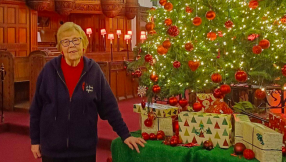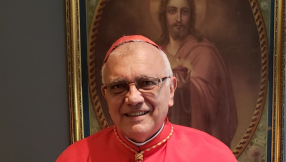
What happens locally really matters ... and local news matters massively.
I believe, as a Christian minister, that churches and congregations have a calling and duty to encourage community-based journalism and professional coverage of our localities.
In the UK, a recent report by MPs highlighted the major challenges facing local media. But it's a problem for many communities in the UK, US, Australia and other places around the world.
What happens on our doorsteps and in our streets and communities can affect us more than most events taking place nationally or across the world.
Churches and other faith groups know this. Many of an area's churches have been rooted in their parishes or local areas for decades – or even centuries. Many are among the most active voluntary groups in their locality.
They have shared in the joys and sorrows of local people through events, changes and developments that have impacted them down through the years.
Yet, in communities across the globe, local media is in decline. Much advertising revenue has been driven online, with the 'Big Tech' companies hoovering up large amounts that would have been spent in local media.
Whole communities have been described as 'media deserts' with little or no coverage of local events as publishers withdraw or consolidate titles. That can only be bad news for democracy, and for people getting their voices heard.
Just as Jesus cared for and valued people on the margins, so Christians have a role to play in encouraging power to be held to account, locally, nationally and globally.
Against a background of declining local media, a small step in the opposite direction has been taken in my home city. An enterprising, experienced journalist – who knows the area well – has launched a new online publication, The St Albans Times.
It's a brave step in the current media environment, and I'm pleased to be among those supporting this new venture.
Our historic city is named after Saint Alban, honoured as Britain's first saint. He was executed under Roman rule in the third century after he protected a Christian priest from persecution. His grave quickly became a place of pilgrimage and led to the origins of St Albans Cathedral.
Just how news spread of Alban's sacrifice is unclear. Word of mouth would have been a powerful tool. Many people from across the country visited the key Roman city of Verulamium, so the word would have gone out swiftly.
Today, news travels at hyper-fast speed, with social media often outstripping established news sources. Unreliable, inaccurate reports can span the world, before experienced journalists are able to question and challenge what is being said.
So I welcome the arrival of the St Albans Times – and other locally-based independent community newspapers in towns, cities and suburbs. The more reporting of news that matters to local people, the better for our communities. The more a range of local views is expressed and discussed, the greater opportunity for dialogue and understanding.
In churches, we pray for our local MPs and councillors, and all those who work, with integrity, for the common good. It can be a challenging calling.
But it's also important that those in power can be questioned about their decisions and called to explain their actions on our behalf. Speaking truth to power is part of the Christian calling.
So, a warm, heartfelt, welcome to the growing number of independent grassroots publications. May they grow and flourish and play an important role in building up community life, keeping us all informed, and holding power to account.
And may they have the support and backing of local churches and Christians.
Rev Peter Crumpler is a Church of England minister in St Albans, Herts, UK, and a former communications director with the CofE.













